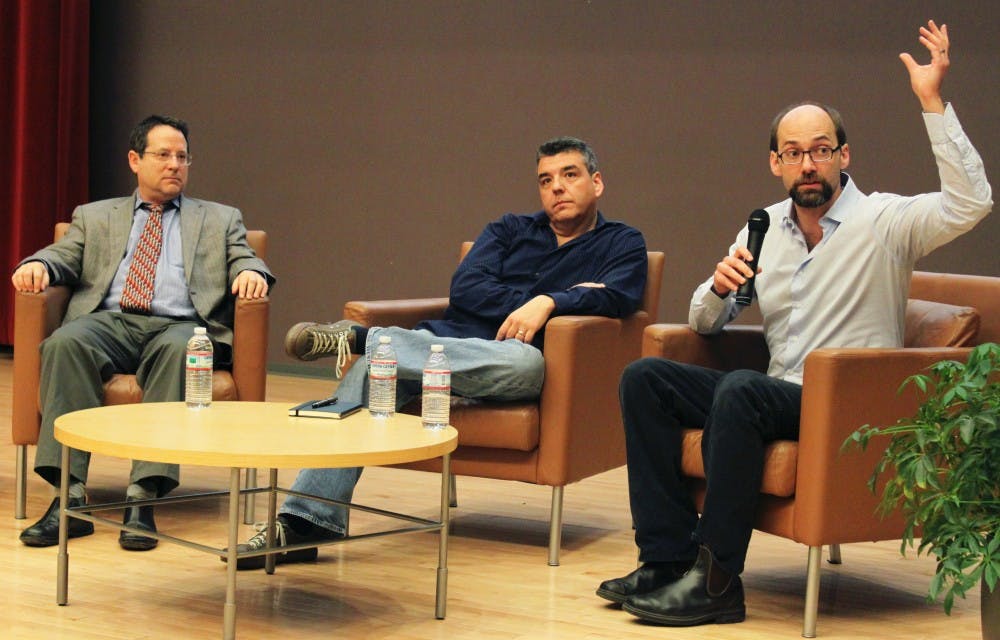It has been more than two weeks since an 8.9-magnitude earthquake and subsequent tsunami devastated northern Japan, and the world is still scrambling to comprehend the crisis the disaster left in its wake.
A panel discussion held Thursday at the FedEx Global Education Center offered a comprehensive view of the crisis, with experts on anthropology, epidemiology and geology offering their insights.
“This is likely to be the most costly natural disaster we’ve seen,” said Kevin Hewison, director of the Carolina Asia Center. The center sponsored the event.
Hewison said the latest death toll stands at about 9,500, nearly half a million Japanese are homeless, and the cost of the disaster could total between $300 billion and $400 billion.
Professor Jonathan Lees and associate professors David Richardson and Chris Nelson led the discussion.
Lees, a professor in the department of geological sciences, explained how the triple junction of tectonic plates near Tokyo caused the earthquakes.
He said earthquakes in that area are not unusual, but earthquakes of this magnitude rarely occur.
The earthquake was the fifth-most severe worldwide in the past 100 years.
Lees also said the likelihood of an earthquake of this magnitude happening in North Carolina is very low. He added that small earthquakes occur in the western part of the state, but few happen in Chapel Hill and the surrounding area.



